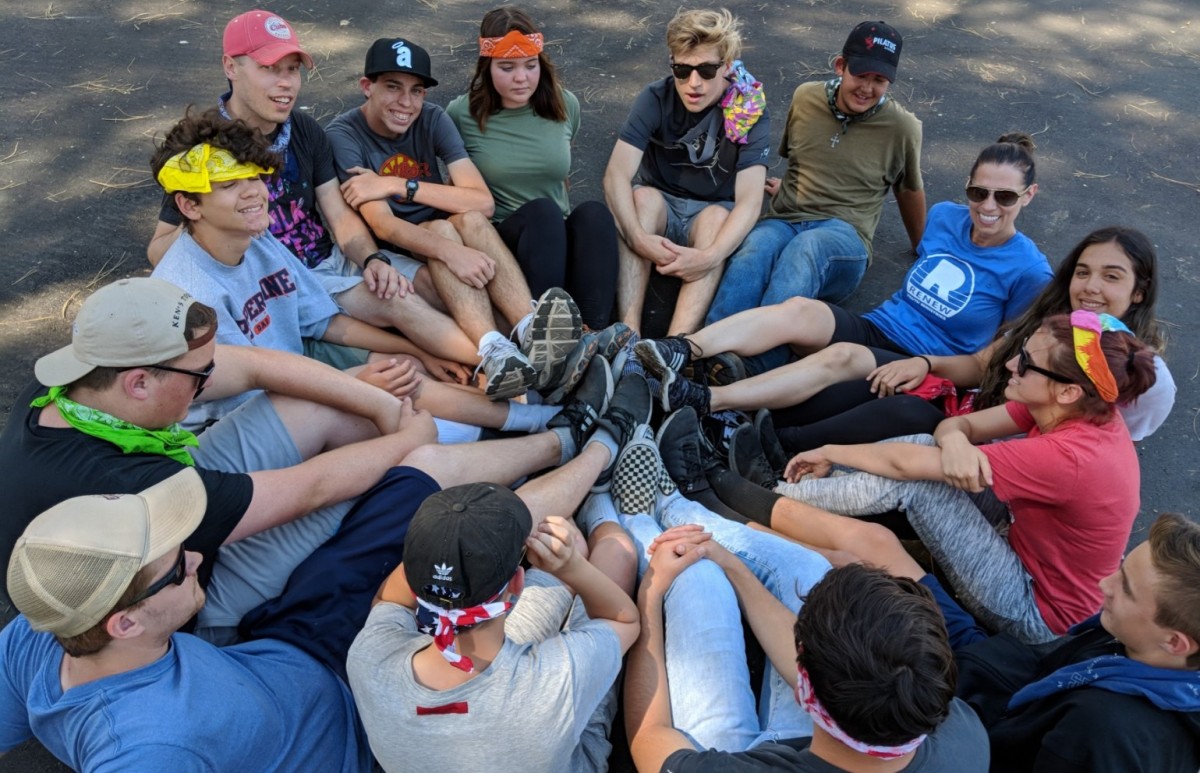Last month I shared that we’re going through our “ministry values” at Renew. And we’re just beginning, so it’s on to the second:
Ministry Value #2: “Youth need significant friendships that add value, encourage growth, and validate each person’s worth. The church provides a place for youth to support one another in a way that they might not experience anywhere else. These types of relationships can be life changing.”
So basically, we’re talking about growing valuable friendships.
I have a friend (I know, shocking). His name is Kevin. 11 years ago when I was youth director at a church in Phoenix, Kevin was a little punk high schooler. We started talking about real life issues and he was asking difficult questions about God and the point of the church. I remember standing in the parking lot after youth group having these deep conversations about life. That was then.
Today, when I go back to Phoenix we hang out, we talk on the phone regularly, he visited me here and spoke at Renew one night, I was a groomsman in his wedding (and he was in mine), and Kevin is now finishing seminary at a school near San Francisco to become a pastor. Kevin is a friend that will always be in my life no matter what.
His friendship is the type of friendship we’re talking about with Ministry Value #2.
Three things about friendships in this statement:
1) Significant friendships add value.
If something has value, we spend money to get it. So we buy something like a nice pair of shoes or a video game. Why does that particular thing have value to us? Maybe because it gives us satisfaction in some way. Do our friendships have this kind of value? Maybe we spend time together, or buy each other presents. How else do you know? But notice this statement doesn’t just say that significant friendships have value, but that they add value. How do we know if we actually add value to our friendships (because let’s be honest, it’s easy to just think we do)? Well, look at the next point:
2) Significant friendships that add value, encourage growth.
If something has value to you, you spend time to work on it or enjoy it. You spend time playing video games or practicing a sport because you enjoy doing that activity, or maybe you want to get better at it. This value is what causes you to invest, and leads to growth. Growing relationships, then, also reveal that we value them. Without growth, there is probably a lack of value.
3) Significant friendships validate each person’s worth.
Not every relationship will reflect this kind of value. We just don’t have the capacity for it. That’s why some people are friends, some are acquaintances, and some are strangers. But that doesn’t mean we only focus on our friends. In the church especially. We can value others without a lot of effort by simply acknowledging that they matter. We treat them with respect and care, even if they are different than us.
The last part of the ministry value says: “The church provides a place for youth to support one another in a way that they might not experience anywhere else.” So what makes the church different?
In life, so much of what we do is based on temporary significance. In a sport or a club you are required to work so you can win. At the end of that you’re left with either a trophy or a loss, and then you either start all over again or move on to something else. This isn’t to say it isn’t valuable or important, but it serves a purpose and then you move on. Or think of your different friend groups over the years. They’re constantly changing based on your age and interests, etc. The friendships that last are the ones with a deeper connection.
This is what makes the church different, I think.
In John 15, Jesus tells the disciples that being connected to God is like fruit being connected to a tree. A branch can’t produce fruit on it’s own; neither can we. And then Jesus says, “This is how my Father shows who he is–when you produce grapes, when you mature as my disciples.” (v 8, MSG)
So then, as we mature, our actions reveal God. So what does it mean to “mature?” The next part explains more detail.
Jesus says, “If you keep my commands, you’ll remain…in my love.” (v 9-10) Maybe Jesus’ statements like these are why the church get s a bad rap. If we keep his commands, we are loved by God??? Why do we have to keep his commands in order to receive God’s love? That seems restricting. Shouldn’t God just love me regardless of what I do?
Yes, he does. The Christian guilt trip is not from God (but that’s a conversation for another time). I don’t think Jesus here is talking about how to receive God’s love. I think he’s telling us how to give God’s love. Because look what he says next:
“I’ve told you these things for a purpose: that my joy might be your joy, and your joy wholly mature.This is my command: Love one another the way I have loved you. This is the very best way to love. Put your life on the line for your friends.” (v 11-13)
There’s a reason we’re called to be “mature.”
There are a lot of commands in the bible. We tend to complicate it and the church gets a bad rap for doing so. But this passage simplifies it. Jesus says that being connected to God will result in us maturing as disciples, and as disciples we are called to keep his command, which is to love each other the way he has loved us. Tie it all together and one thing is pretty clear: When we love our friends to the point of death, we are like a tree producing fruit. For those of us in the church, this is our calling.
This kind of love can exist outside the church, but there’s a bigger potential for it here because we have these words from Jesus. We have a calling to it despite our differences. So this is why significant friendships are a ministry value.


